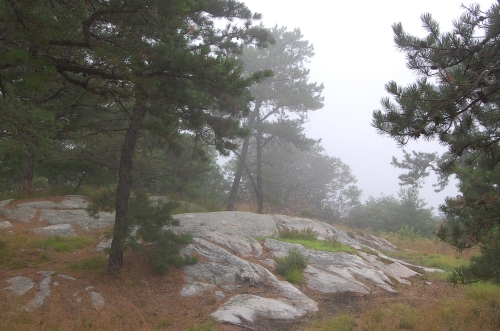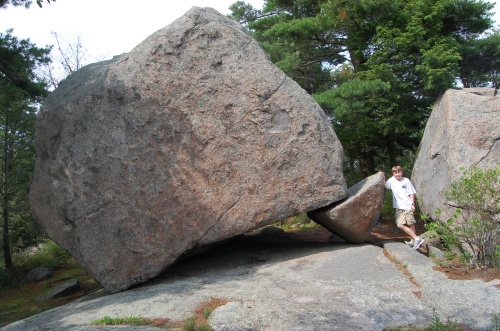I’m now writing from Manchester Massachusetts, a small town north of Boston. More precisely, i’m writing from Coolidge Point. No coincidence that i am partaking in the Coolidge Pathfinder Award.
I’m spending two nights with John and Kitty Lastavica, who have been absolutely fantastic. I was rather nervous about staying with my first ‘proper’ hosts, but they made me feel right at home. Kitty is both the niece of Bill Coolidge, who set up the Pathfinders scheme, and is a direct descendant of Thomas Jefferson! John is a Serb ex-patriot, who left Serbia in 1944 as Tito’s communists were rising to power, having already fled the Nazi-sponsored Croat purges in the north of Yugoslavia. He then made his way to Peru on a US Navy ship (although it was being sailed by the army), and stayed in Lima for 10 years before emigrating to the USA.
Talking to John has been really interesting, for he is in effect a holocaust survivor. Over 500,000 Serbs were killed either by the Nazis directly (punishment for Serb resistance to Germany from 1914-18 ) or by Nazi-sponsored Croats (the infamous Ustaše). It was interesting for me to talk to a Serb of older generation; last year when travelling through Europe i met many young Serbs (and Croats) when i visited the Balkans, but none of John’s age. Time seems to have mellowed him only slightly – he passionately denounces Bill Clinton as ‘a war criminal’ for the 1999 bombings of Belgrade (and his views on Bush are no less scathing). I was intruiged to hear his views on both Croatia and Kosovo; regarding the latter he still bears a deep distrust, which was deepend by following the 1991-5 war. He told me an instructive anecdote about how, even in 1944, he did not trust a man who ostensibly was helping him cross the Adriatic – and John crossed the Adriatic by sailing it himself in a tiny boat with his mother and 2 siblings – because, essentially, he was Croat. This kind of oral testimony is interesting because much of the literature surrounding the 1991-95 war argues that the ethnic hatreds were to a large extent artificially produced and enraged by nationalist politicians aiming to increase their own power-base. Talking to John, whose fire burns as strong now as it did 60 years ago, i’m really not so sure that analysis is as correct as I used to. As regards Kosovo, while John is not as angry about the issue as some of the young Serbs i met last year – he does not, for example, declare angrily that ‘Kosovo is Serbia!’ – he certainly believes that Kosovar independence is motivated by US power-wrangling in the region.
Anyway, John and Kitty have both been truly wonderful hosts, taking me to no less than two country clubs, where i was treated to food and drink that can only be described as superb. Their house, as i mentioned above, is located on Coolidge Point, a large peninsula, much of which is now a public nature reserve, which includes…
What the Americans consider to be ponds, but Brits would probably think of as lakes:
Woodlands:
Rocky outcrops:
And of course, a beach opening onto the Atlantic Ocean:
(The fog in the above is really surreal: these pictures were taken at 1pm, and it was really hot and humid. Never in England have I seen this sort of fog in the middle of the day, especially not in the start of July.)
This afternoon i had a little guided tour of the area around Manchester by Kitty’s brother Bill, and his son Benjamin. The Massachusetts coast really is fantastically beautiful, and so immersed in it was I that I forgot to take any pictures. I did, however, get some pictures of boulders left in the area by Glacial activity thousands of years ago:
Bill was really friendly and helpful, and gave me a brief run-down of the local history, which i reciprocated by explaining what little i could remember from History A-Level of the early-17th Century British Political System (this arose out of a conversation about Guy Fawkes night, I wasn’t just being a bore. This time.)
Anyhow, time for a little rambling. Gun control and ownership is, from what i can tell, a perennial Big Issue in the USA, but it is particularly salient at the moment because of a recent ruling by the Supreme Court stating that individuals do possess the right to bear arms individually, and not only when part of an organised militia (two alternative readings can be drawn from the Constitution’s Second Amendment, thanks to some dreadful punctuation). This is significant because Obama had previously endorsed the reading that gun-ownership was constitutional only when part of a militia, thus making gun-controls in the D.C. area constitutional – now the Supreme Court says otherwise. This has been viewed by many as a deliberately political reading; a majority-Republican Supreme Court ruling in a way to embarrass the Democratic candidate.
What has interested me, however, is ordinary American attitudes to gun ownership. Of all the people I have spoken to, nobody has said that they think individuals should not be allowed to own guns – not one. However, everybody is keen to stress that the important issue is gun control, who is allowed to have one, and whether or not one can carry a gun concealed from public view. This is a complex issue, and i’m not qualified to enter the debate. Yet it is still all a little bewildering for me. Hailing from a country where not only is gun-ownership is non-existent, but where advocates for a policy for introducinggun-ownership belong (usually) to whacky fringe-parties like the laughably incompetent, neo-fascist British National Party, this is all very bizarre.
I am, however, attempting to understand what i’m seeing. Two factors, somewhat inter-related, seem to pull a great deal of weight. Firstly, American History; this is a country founded on the notion of individualism and individual rights, where men saw themselves as having to assert their own claims not only against each other, but against the power (or potential power) of the State. The Founding Fathers (it could be argued, and it seems many would so-argue) wanted America to be forever free of the tyrannies of Europe – providing for non-State militias and (depending on how you read the Second Amendment) and the right for individuals to bear arms is one way of securing this, at least in the 18th-19thCenturies. This mentality of both individual right and need to self-protect still seems to weigh heavy.
Secondly, Americans tie guns closely to crime. Not crime caused by guns – as one insightful lady i spoke to pointed out, gun-crime is generally committed with illegally held weapons anyway, so illegalising them all may not change anything – but crime which can be resisted by guns. The number-one factor people point to, and usually very quickly, when discussing gun-ownership is the ability to defend one’s self from criminal aggressors, generally in the defence of private property. Clearly this connects to the above, but it certainly raises some questions.
For example, the anti-gun lobby says most gun-murders are perpetrated by people who know each other, against each other. The gun lobby says that without guns, ordinary Americans cannot protect themselves from criminals. I’d be interested to see some statistics either way, if anybody knows where to get them.
Anyway, i’m still making my mind up about guns in America (more precisely: i still think it is crazy that America is full of guns, but the issues are so complex I cannot tell anyone exactly why I think it is crazy, at this point). What i can say is that guns really matter over here, and I am starting to understand something that earlier shocked me. When i was waiting to get through passport control at New York JFK, a television in the lobby was showing CNN. A fierce debate was raging between a Republican and a Democrat about gun-control, and Obama’s stance specifically. The Republican’s main weapon of attack was to assert, again and again, that Obama is “a gun-grabber”. I now see why this is such a big piece of mud to throw, and Republicans will no-doubt try very hard to make this particular piece of mud stick.







The big debate in the UK at the moment is not about guns but about knives (around 20 youngsters stabbed in London this year alone); what would be the attitude of Americans to these and other weapons (eg reference to Lionel Shriver’s book and the cross-bow massacre possibility)
yeah, the tories are going for a “caught with a knife = go to jail” stance.